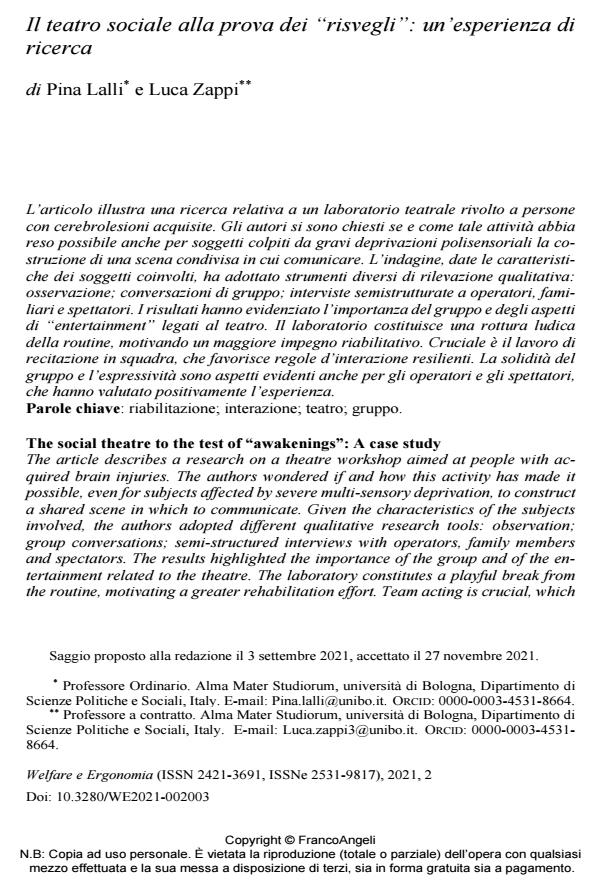The social theatre to the test of "awakenings": A case study
Journal title WELFARE E ERGONOMIA
Author/s Pina Lalli, Luca Zappi
Publishing Year 2022 Issue 2021/2
Language Italian Pages 10 P. 39-48 File size 171 KB
DOI 10.3280/WE2021-002003
DOI is like a bar code for intellectual property: to have more infomation
click here
Below, you can see the article first page
If you want to buy this article in PDF format, you can do it, following the instructions to buy download credits

FrancoAngeli is member of Publishers International Linking Association, Inc (PILA), a not-for-profit association which run the CrossRef service enabling links to and from online scholarly content.
The article describes a research on a theatre workshop aimed at people with acquired brain injuries. The authors wondered if and how this activity has made it possible, even for subjects affected by severe multi-sensory deprivation, to construct a shared scene in which to communicate. Given the characteristics of the subjects involved, the authors adopted different qualitative research tools: observation; group conversations; semi-structured interviews with operators, family members and spectators. The results highlighted the importance of the group and of the entertainment related to the theatre. The laboratory constitutes a playful break from the routine, motivating a greater rehabilitation effort. Team acting is crucial, which enhances resilient rules of interaction. The solidity of the group and expressiveness are also evident aspects for operators and spectators, who have positively evaluated the experience.
Keywords: rehabilitation; interaction; theatre; group.
Pina Lalli, Luca Zappi, Il teatro sociale alla prova dei "risvegli": un’esperienza di ricerca in "WELFARE E ERGONOMIA" 2/2021, pp 39-48, DOI: 10.3280/WE2021-002003